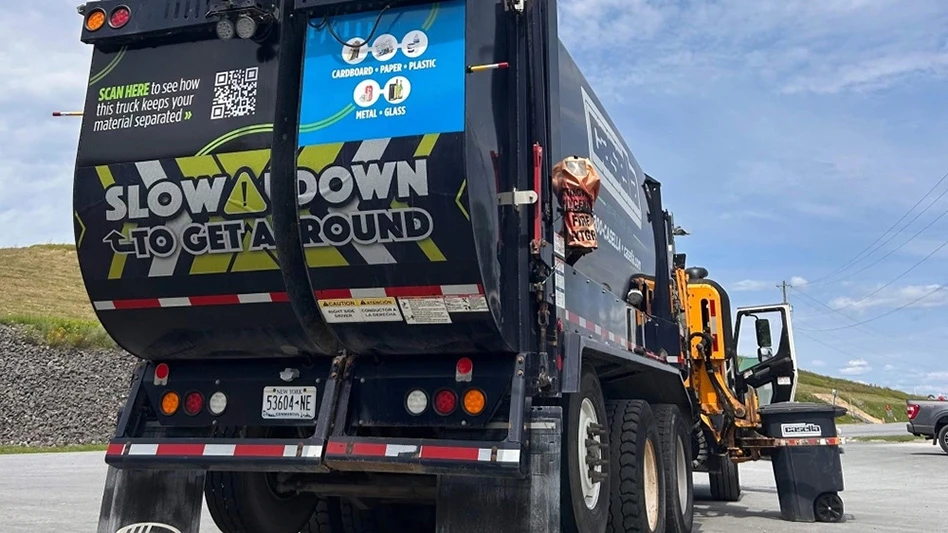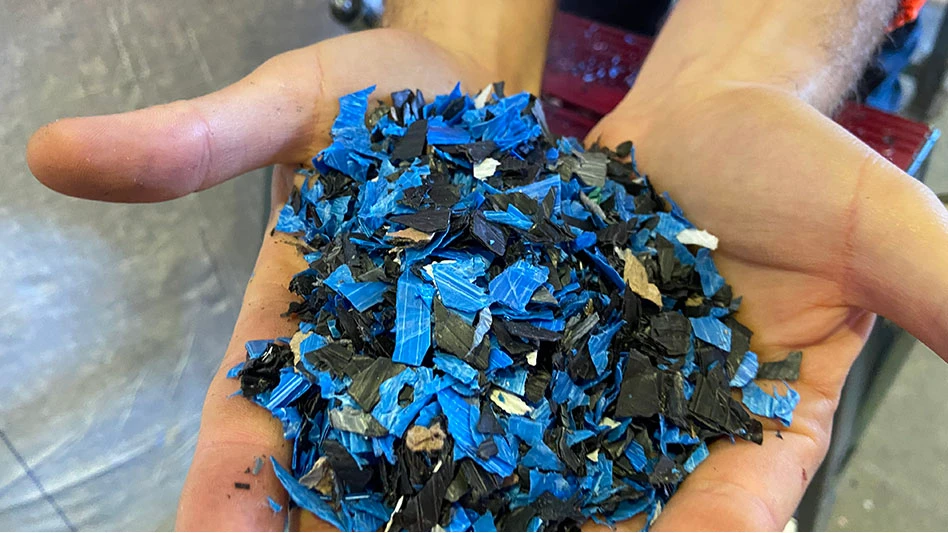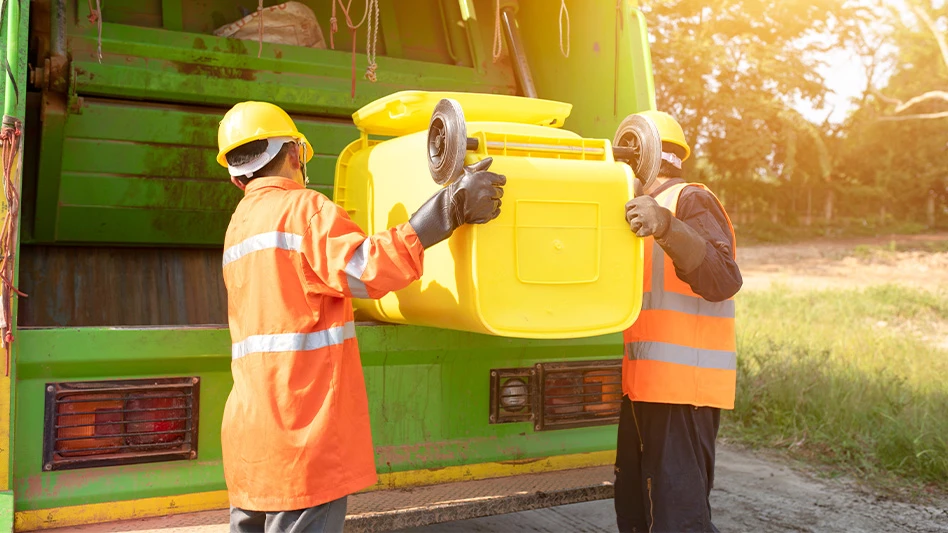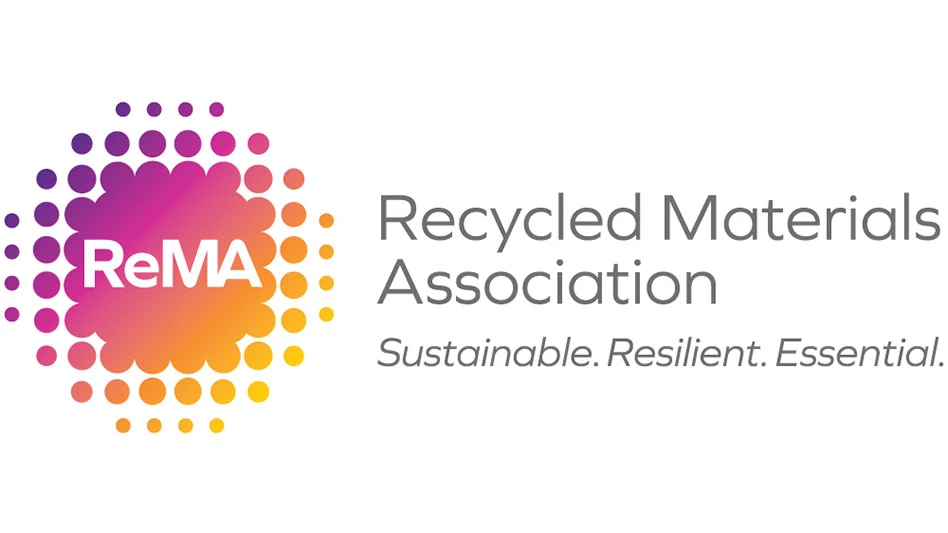The city's trash pickup program -- plagued with continuing complaints of illegal dumping, widespread littering and other problems -- is $1.3 million behind projections as it approaches its first year in operation.
The shortfall occurred because more residents than expected opted for smaller garbage carts in an apparent effort to trim their trash collection costs, officials said.
And although the amount of material put out for recycling has tripled, about 25 percent of it has been rejected because the items did not meet guidelines, officials said.
"In some parts of the city, people don't have any problems with the system and they love it," said Councilman Chuck Silcox, who opposed the plan and has recommended changes. "But in some parts of the city, it just is not working.
"If this was a good plan, everything would be running smooth as can be right now. But guess what -- it's not."
The program's supporters predict that the future will be smoother.
"You're changing the habits of half a million people in a short time frame," Councilwoman Becky Haskin said. "But with every passing day, with every passing week, we see a few more people understanding and educated about the program.
"It's a problem that everybody has got to work together on."
Money matters
Under the "pay as you throw" program -- which was phased in over several months beginning March 31 -- residents pay for monthly garbage collection based on the size of garbage cart they selected.
Before, residents were charged a flat rate of $13.75 monthly for twice-a-week collection. Now, they chose a 32-, 64- or 96-gallon cart for $8, $13 or $18 a month for once-a-week pickup.
Residents also received much larger carts for recycling. They get four free pickups annually for brush and bulky waste.
Brian Boerner, the city's environmental management director, said the system was designed to reduce the amount of trash taken to the landfill by increasing recycling.
The program has achieved that goal, he said.
"We spent 30 years under the old system and change is never easy," Boerner said. "People are recycling a whole lot more and a majority of the people are paying less."
But that's part of the problem. Records requested by the Star-Telegram show that officials underestimated the number of residents who would opt for smaller carts, which generate less revenue for the city.
Officials had calculated that 37 percent of residents would choose the largest, 96-gallon carts. Only 8 percent of residents asked for those carts, spending about $7.2 million less than expected.
Nearly 29 percent more residents than expected ordered the medium-size, 64-gallon cart, and more than twice as many residents as expected ordered the smallest, 32-gallon cart.
The increase in revenue in those categories -- about $5.9 million -- did not fully offset the loss, leaving the city about $1.3 million below expectations.
City officials stress, however, that the system is not operating in the red. Overall, $22.5 million has been generated the first year to cover the program's expected $22.1 million annual cost, city records show.
"The fund is very healthy, generating revenue we needed to cover the contract and more," Boerner said.
Trash fallout
The city's recycling rate rose to 18 percent this year, up from 6 percent last year, and more than 70 percent of residents now recycle compared with 38 percent before the new program was launched.
Officials say that about 44,778 tons of waste have been kept out of the landfill since the program began -- enough to cover 26 football fields five feet deep, officials said. That includes nearly 31,000 tons of recyclables, 11,000 tons of yard trimmings and 2,600 tons of brush.
Increased recycling adds money to the city's solid waste fund and helps keep costs down.
The city's recycling contractor, Abitibi Consolidated in Arlington, pays a rebate on recycled items. Since the program started, the city has earned more than $540,000 in rebates, records show.
"The better residents are about putting the correct items in the recycling cart, the more money the city stands to make on recycling, which helps keep residential rates low," said Dot Kent, the city's interim public information officer.
However, the latest Abitibi audit shows that 25 percent of the material deposited in the recycling carts was rejected at the recycling plant.
About 13 percent was "residue," such as tiny bits of paper or glass so small that they couldn't be recycled. About 12 percent of the rejected items were "removables," items such as plastic foam and plastic grocery sacks that are recyclable elsewhere but not in Fort Worth.
Less than 1 percent was garbage, according to the audit.
Items rejected at the recycling plant are shipped to the landfill and do not generate rebates for the city.
In response, city environmental officials have cracked down on recycling violators, checking carts for improper items and issuing warnings if the problems aren't resolved.
As of Monday, officers had handed out 20,334 notices of violations for trash, recycling, big trash and other violations. The city issued 665 tickets, which carry fines of up to $2,000.
Turbulent year
Questions and complaints continue to roll in, although they have dropped off in recent months.
Just days into the new system, about 12,000 calls, or an average of 2,075 a day, were logged on the city's trash hot line.
When the new trash carts were phased in June 30, the calls jumped to an average of 3,200 per day, or about 19,000 a week, city records show.
But for the past few months, the city has averaged 3,500 to 6,000 calls per week, or 600 to 1,000 calls a day, records show.
Kent said calls -- which average about 12 complaints for every 10,000 pickups -- can fluctuate depending on things such as the weather and holidays.
The complaints have included missed pickups, illegal dumping, growing piles of brush and bulky waste and increasing litter throughout the city.
Eastside resident Sharon Englen is among those still dissatisfied with the system.
Some weeks, she says, she doesn't have enough trash to fill her 64-gallon cart even halfway. Other weeks, she has so much trash that she has to store some to throw out at a later date.
"It's not pay-as-you-go," Englen said. "I have to budget my trash. It's never right."
Englen said she has also seen illegal dumping increase sharply at the grocery store across the street from her home. She keeps an eye on it because she has to pick up trash that blows into her yard.
"People drive up and just start unloading their trash into the grocery store's" trash bins, she said. "Before the carts came out, there was the same problem, but it has increased tenfold."
City officials have worked to resolve the problems with Waste Management, which holds a 10-year contract to collect the city's garbage.
At one point, the City Council put Waste Management on legal notice, threatening to end the contract if the problems weren't fixed. They eventually withdrew the threat.
By October, Waste Management had fired its recycling subcontractor, Resource Waste Services, for contract violations such as repeatedly missing pickups and leaving carts in the street. They were replaced by subcontractor Knight Waste Services.
Carol Fearns, chief operating officer for The Solid Waste Association of North America, said Fort Worth appeared to have a string of bad luck.
"Fort Worth had just about everything that could go wrong, go wrong," she said.
Looking ahead
City leaders are working to revamp parts of the system.
The staff is developing a "bag-tag" system that would allow residents to pay extra to dispose of an occasional bag of extra trash, and is drafting a litter ordinance that would crack down on landlords who dump tenants' belongings at the curb.
Officials are also exploring ways to pick up brush and bulky waste more efficiently, including a possible return to automatic neighborhood pickups.
Mayor Mike Moncrief, who was elected after the program went into effect, recently formed a council subcommittee to study options, and hopes to have a public meeting soon.
"Brush and bulky waste pickup isn't working the way it needs to," Moncrief said. "I anticipate some type of changes, but I'm not certain what type they'll be, or what the cost will be or who will bear the cost."
But he said he and other city officials won't stop until they find a solution.
"I call it dancing with a bear," he said. "When you dance with a bear and you get tired, you don't sit down. You keep dancing until the bear gets tired.
"We'll keep dancing until this gets fixed," he said. "We've got to find a solution."
Some, however, question whether the program can be rehabilitated.
"The overall program is a disaster because we have tailored the entire program on recycling rather than keeping the entire city clean," said Councilman Clyde Picht, who voted against the new system.
"'We've lost sight of what we want to do -- pick up trash," he said. "And we're paying for it. We're getting a dirty city." - Fort Worth (Texas) Star Telegram
Latest from Recycling Today
- Vermeer announces plan to build new facility in Des Moines metro area
- PureCycle, Toppan partner on packaging containing PCR
- LKQ to focus on simplification, productivity in uncertain demand environment
- Supreme Court strikes down IEEPA tariffs
- Redwood expands San Francisco R&D footprint
- Constellium posts record Q4 adjusted EBITDA
- QCC torches include customizable features
- Umicore finishes 2025 with increased earnings





